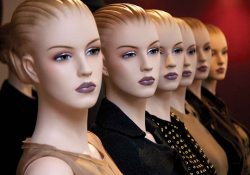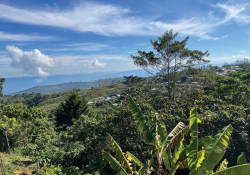On Wrungness in Translation

Ursula Andkjær Olsen is one of Denmark’s most important contemporary poets. A poets’ poet and a critics’ darling, she won the prestigious literary award Montanaprisen in 2013 for her 214-page poem Det 3. årtusindes hjerte (Third-Millennium Heart), from a judging committee who hailed Olsen as “one of the wildest and sharpest intellects in Danish contemporary poetry.” In 2015 Olsen’s sequel to Third-Millennium Heart, a book-length “mirror poem” titled Udgående Fartøj (Outgoing Vessel), received the Danish Critics’ Prize from a committee who described the poetic work as “an eruption of anger and a philosophical manifesto, a wail and a hymn, an interrogation of metaphysics, a critique of our age, and a future utopia.”
Last year, my translation of Third-Millennium Heart was co-published by Broken Dimanche Press and Action Books in the US. Continuing from where Third-Millennium Heart left off, Outgoing Vessel is written in the same voice and form, and with a similar structure: a series of poetic suites that all make up one large poem, with a ritualistic repetition of certain lines and images. One literary critic noted in the Danish broadsheet Politiken that “while Third-Millennium Heart was about grief and capitalism, Outgoing Vessel is about grief and science fiction. The grieving over multiple abortions, which gave Third-Millennium Heart its wild depth, is still there; however, in Outgoing Vessel, grief has become a hard orb, hidden far inside the speaker’s ‘distant interior.’ In there, utopian hopes of change loom.”
When offered to translate Olsen’s poetry into English three years ago, I was both excited and terrified. In addition to experiments with puns, syntax, and neologisms, her work contained a multitude of subtle cultural, scientific, and mythological references—and had largely been deemed untranslatable for these very reasons. As I launched—or rather fell—into translating Olsen’s poetry, I first discovered how difficult it was to render her use of voice. The speaker in both collections is an ambiguous character: abusive yet a victim; fiercely emotional yet icy and cynical. In order to find this narrative voice in translation, I picked ten poems from completely different parts—or should I say temperaments—of Third-Millennium Heart and tried to find a sort of median tone. I went through at least fifteen drafts of those ten initial poems before finding a voice I was satisfied with.
Compared to Third-Millennium Heart, the pleasures and perils of translating Outgoing Vessel are exactly the same. For instance, I chose to transform and (mis)translate many of Third-Millennium Heart’s capitalism-neologisms in order to make them more impactful (or just more fun) in English. A neologism such as væksthund (direct translation: growth-dog) became a “charging bulldog” in my version, replacing “growth” with Wall Street’s Charging Bull, an American symbol of aggressive financial optimism and prosperity. In another case, I seized an opportunity to translate matriarkatet (the matriarchy) to “the matriarchate,” which denotes matriarchy and connotes the (free) market as well as Mother Market, a concept/character introduced in the same poem.
Similar neologisms and opportunities for wordplay in translation populate the pages of Outgoing Vessel, excerpted in this issue of WLT. One of my favorite neologisms appears in poem 145: “I have wrung myself to create / the necessary loop / wrungness caused by external violence / wrungness caused by the exercise of violence / wrungness caused by flight / wrungness caused by care.” The Danish word behind “wrungness” is forvrængning, which actually just means distortion—so in this case, I created my own neologism to preserve the uncanny play on “wrung” that exists in the Danish version and which, to me, is the highlight of the poem. Aside from the visceral image that “wrungness” evokes in the context of this poem, I like the way it echoes “wrongness,” adding yet another layer of meaning to the evolution of this book in translation—approved by the author herself, of course. Olsen is refreshingly progressive when it comes to translation: she doesn’t consider her own poetry the original work but rather a translation of an idea that is much bigger than her. According to Olsen, she is simply the first translator of the work, and I am the second.
Editorial note: Read five of Jensen’s translations included in this issue.









